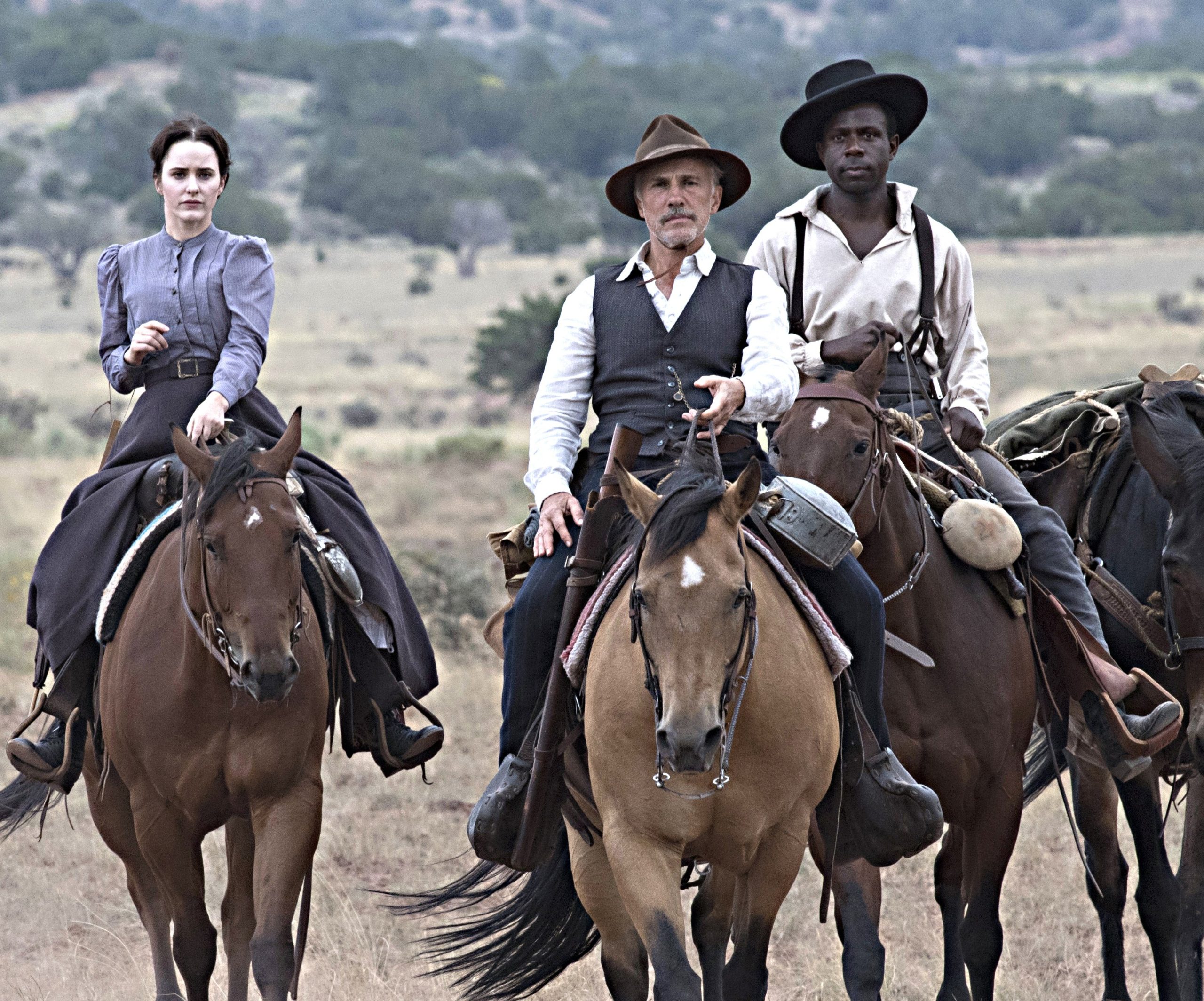«The Western genre was a formative experience for me: it was watching those movies that as a kid I learned the difference between good and evil. But then all that American stuff bored me, and frankly, if I have to say which are the real Westerns, I can only answer Sergio Leone‘s “spaghetti westerns.” Although I never understood why spaghetti had anything to do with it». Christoph Waltz, 66, a Viennese actor who rose to worldwide fame with the role of Nazi Hans Landa in Inglourious Basterds which earned him the first Oscar of his career, explains his relationship with the genre to which he now returns after playing a bounty hunter in Django Unchained (second Oscar), also by Quentin Tarantino.
In Dead for a Dollar, directed by Walter Hill, and releasing for rent on March 13 on Prime Video, Sky Now, iTunes, and other online streaming services, Waltz plays Max Borlund, a bounty hunter based on the real-life figure of former Danish officer Chris Madsen who emigrated to the United States.
The man is tasked by a wealthy landowner to find his wife (Rachel Brosnahan), taken by a black confederate soldier (Brandon Scott), so he sets out for Mexico on their trail. Soon, however, he discovers that another truth lies behind the kidnapping, and along his journey, he will find a number of obstacles, including an encounter with outlaw Tiberius Vargas (Benjamin Bratt) and his henchmen. Meanwhile, also hot on Borlund’s trail is Joe Cribbens (Willem Dafoe), a criminal with an unmistakable grin who has morals of his own, as well as a score to settle with the bounty hunter.
«I remember wanting to go to the movies to see Once Upon a Time in the West, by Sergio Leone, but I was too young because you had to be 16 to get into the theater» says Waltz. «So I had my classmates tell me about it. They were the same age as me but managed to get in because they looked older. There is no tradition of westerns in Austria, but the genre obviously came to us: I was influenced by it but is not among my favorites. And if I had to side with someone between Indians and cowboys I definitely wouldn’t choose cowboys».
What attracted you to this project?
«When Walter Hill sent me the script to read, I was attracted by its simplicity. Everything is clear in this story: the characters, their moral code, and the narrative that goes on linearly from point A to point B. If there’s one thing I can’t stand, it’s postmodern cinema, which pretends to be intellectual and breaks down the narrative, wants to reinvent it, and turns a story upside down just for the sake of it. And so you are no longer interested in the story itself, only in the way of telling it. I find it is contrived and pseudo-intellectual, a kind of experiment of someone who, instead of trying to say something to others, talks to himself. I prefer classical, simple cinema».
Max Borlund’s character is quite similar to that of Dr. King Schulz in Django Unchained…
«You think?»
Well, they are both bounty hunters, one of the archetypes of the Old West.
«In commedia dell’arte, which is a popular theater in which various types of the public are condensed into a character, the actor wears a mask that typifies an archetype. In a sense, every genre has these simplifications in the background, and so I agree that Schulz and Borlund can respond to an archetype. But then each character is different, living in the personal world of the writer and being played by an actor. That’s why I don’t see so many similarities between Borlund and Schulz.
Maybe you have the idea that all cowboys are the same because many actors have played them thinking they have to go along with the archetype. Like those who, wearing a hat, feel like John Wayne…. I’ll make a confession, but don’t write it down: I’ve always hated it. I mean: if you are John Wayne and you play a cowboy, why do you have to play John Wayne? It’s enough to just play the part. The actor has to disappear into the character and not become the character himself».
Your villains have something in common: they are never what you expect them to be. How do you construct them?
«I do exactly that: I subtract from them those traits that make them look like bad guys and play them. Those who are bad guys never think of themselves as such, and I do that on the set, too. Borlund has his own morals, but he’s certainly no saint».
How did you prepare to play him?
«The same way I prepare everyone else: I am 100 percent convinced that discipline is the starting point for thinking, acting, and even feeling emotions, especially if you do it in the service of a script. Today it is perhaps considered an old-fashioned approach, but I think it is the foundation of all forms of communication».
Where does your discipline come from? Tell it, as an Austrian, to the Italians…
«Do you think Austrians are more disciplined than Italians? You are wrong. Those are the Germans».
So, where does it come from?
«I think in life people are always too focused on how they feel. So do actors. But what does it matter how you feel? Emotions are irrelevant to doing a job. That’s why you need discipline. One has to ask oneself: what do I need to play that character? And if one maybe thinks he doesn’t have the right tools, even just trying is a way of moving forward. Now I don’t mean that one has to adhere to a form of iron Prussian military discipline, but I think in general in dealing with a problem one has to ask what is the ideal solution. The simplest and most straightforward, free from any questioning of one’s emotions about it».
I read that among your future projects is Billy Wilder & Me, in which you are supposed to play the legendary director. What can you say about that?
«I actually detest biopics and biographies in cinema. They only serve to make the audience appreciate how good the makeup artists are. But this film, which I hope will be made, is written by Christopher Hampton and it’s not about Wilder’s career but about a specific moment in his existence, a kind of swan song, which has nothing to do with the celebrity of the people involved. That’s why I said “yes”».

